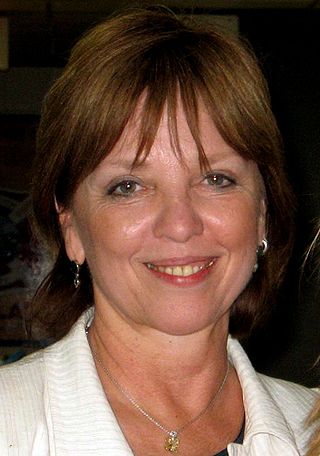Some romance novel authors and readers believe the genre has additional restrictions, from plot considerations such as the protagonists meeting early on in the story, to avoiding themes such as adultery. Disagreements have centered on the firm requirement for a happy ending, or the place of same-sex relationships within the genre. Some readers admit stories without a happy ending, if the focus of the story is on the romantic love between the two main characters (e.g. Romeo and Juliet). Others believe the definition should be more strictly worded to include only heterosexual pairing. While the majority of romance novels meet the stricter criteria, there are also many books that are widely considered to be romance novels that deviate from these rules. Therefore, the general definition, as embraced by the RWA and publishers, includes only the focus on a developing romantic relationship and an optimistic ending. [14] [15]
Diversity and inclusion issues
The RWA has struggled with diversity and inclusion. More than 80% of its members are white, as compared to about 61% of the population of the United States. [16] As the industry changed, there was resistance to including authors of romance novels which featured homosexual love stories. A 2005 poll in the Romance Writer Report asked members if the by-laws should be changed to define romance as between a woman and a man. Nora Roberts, one of the most prolific and famous romance authors, wrote a letter of protest that the question had been included. The then-president of the board of directors responded in an email that she was worried "the lesbians were going to take over" the RWA. [7] There was a community uproar, and the matter was dropped. [7]
Another uproar ensued in 2015 when Kate Breslin, a finalist for the Best Inspirational Romance RITA, was accused of anti-Semitism. Her novel For Such a Time's hero was a Nazi concentration camp commandant, and the heroine was an imprisoned Jew who later converted to Christianity. [7] At the same conference, an editor for a major publisher admitted that they did not purchase any books by non-white authors or featuring non-white characters; those were instead segregated to a different imprint. [7] The Board began to focus more on diversity and inclusion efforts, leading to a backlash from some of its white members. In summer 2017, founding RWA member Linda Howard posted on an internal forum that "'Diversity for the sake of diversity is discrimination'". [16] The resulting furor led Howard to leave the organization. [16]
Many authors pointed to the RITA awards as evidence that the organization did not take diversity and inclusion seriously. Any author could pay to nominate her books. Entrants can then elect to judge other nominees. [17] Judges were not provided with training on scoring or avoiding bias. [18] An RWA analysis of the previous 18 years of RITA finalists and winners showed that less than 0.5% of the finalists were black authors, and no black woman had even won. [16] Jennifer Prokop, the romance reviewer for Kirkus Reviews , analyzed 60 books that were finalists for the 2019 RITAs and discovered that white authors overwhelmingly created worlds that were populated with white, cis-gendered straight characters, regardless of the timeframe or setting of their novels. This was true even for paranormal stories that featured fictional creatures such as vampires. [18]
In 2018, several critically praised books by authors of color were not among the finalists for RITAs. [16] Some authors of color, including RWA Lifetime Achievement Award Winner Beverly Jenkins and popular novelist Helen Hoang, refused to enter their books at all. In other cases, the books were entered but did not score highly enough to become a finalist. [17] At the annual conference that year, Lifetime Achievement Award Winner Suzanne Brockmann gave a speech denouncing white supremacy within the organization and the industry. [16] In an effort to address the controversy, the Board changed some of the contest rules, including by tracking scores by individual judges to attempt to detect bias. [16] They also required that some of the judges in each category be librarians or booksellers, and that at least one judge should be a person of color or a queer person. [7] Of the 80 authors who were finalists in 2019, three were women of color. The finalist list excluded author Alyssa Cole, whose submission had been named one of the New York Times's 100 Notable Books of the Year, an honor that is exceedingly rare for a romance. [16] Many authors began to debate whether the RITA Awards were truly representative of excellence in the industry. The Board released a statement "“apologiz[ing] to our members of color and LGBTQ+ members for putting them in a position where they feel unwanted and unheard.” [7] At the conference in July 2019, two of the RITA winners, M. Malone and Kennedy Ryan, were Black women, and one woman, Nisha Sharma, was the first winner of South Asian descent. [7]
In August 2019, many authors participated in a Twitter discussion about racism and gatekeeping within the romance publishing industry. Courtney Milan, a Chinese-American author, joined the discussion and critiqued a book written by a current acquiring editor, Kathryn Lynn Davis. Milan labeled the book and its portrayal of a half-Chinese heroine as racist. Davis and the publisher for whom she works, Suzan Tisdale, filed RWA ethics complaints against Milan, who was at the time the chair of the Ethics Committee. [19] In late December 2019, the Board voted to suspend Milan for one year and ban her from leadership for life; within a few days, after questions were raised about the process used to sanction Milan, the Board rescinded the punishment. [20] Eight members of the group's Board of Directors, all women of color, resigned as a block. [19] RWA President Carolyn Jewell also resigned.
The backlash to the sanctioning was intense. The annual RITA awards were cancelled after many judges resigned and hundreds of authors withdrew their books from consideration. [19] Most of the major publishers in the industry announced they would not attend or support the annual RWA conference because they questioned the RWA's support of diversity and inclusion. [20]
The Cultural, Interracial, and Multicultural Special Interest Chapter of the RWA, which hosted authors whose local chapters were not perceived as welcoming to women of color, started a petition to recall new President Damon Suede. Suede and the RWA Executive Director resigned on January 9, 2020. [19] More board resignations followed.
In May 2020 the RWA announced that it was replacing the Rita Awards with the Vivian Awards, named after Vivian Stephens, the organization's founder, a Black editor, "in an attempt to move on from the controversy" and to recognise that "happily ever afters are for everyone”. [21]







